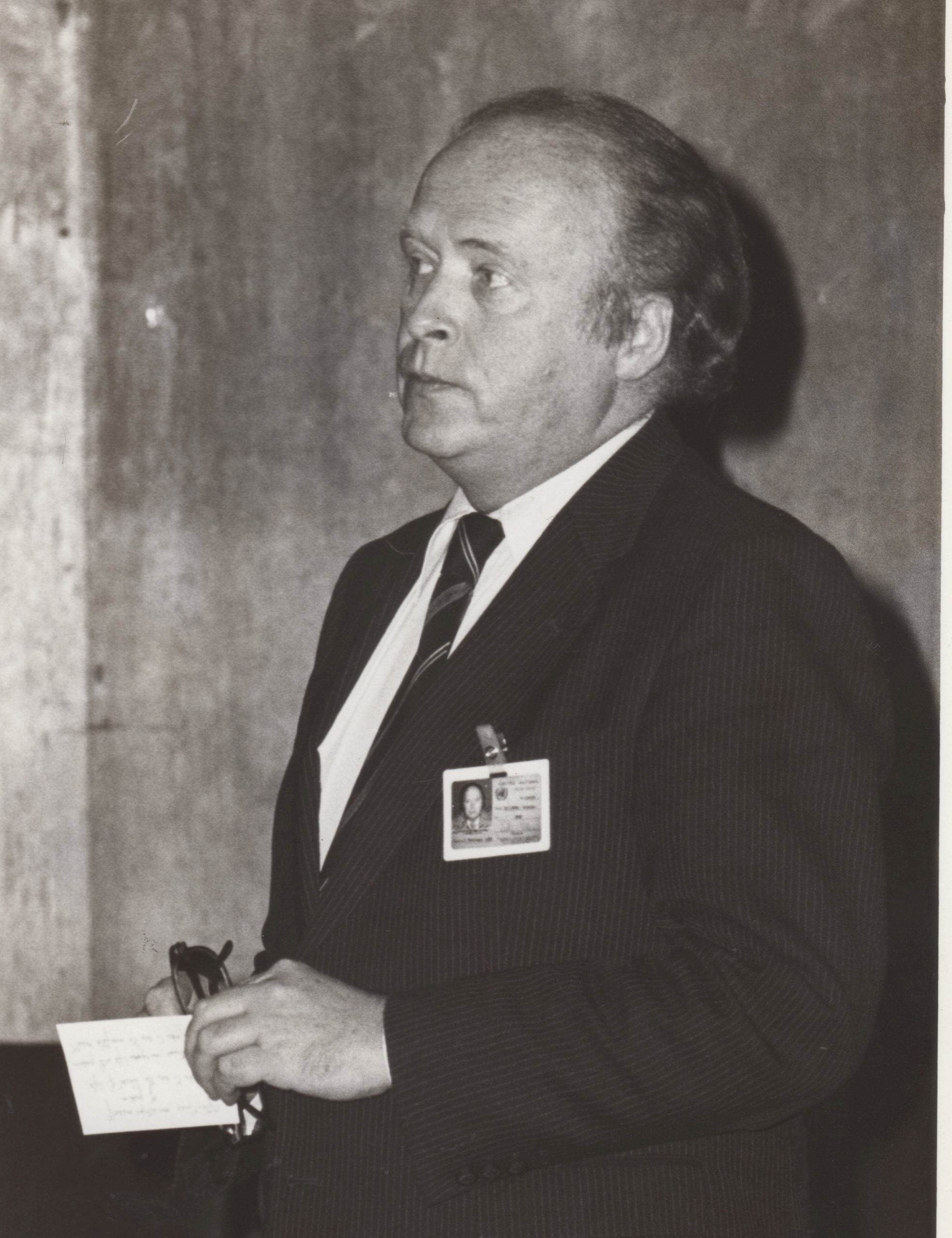Complex Development Issues at UNDP 1982 Nov 29
Filed under Thoughts from the UN community.Address by Mr. Erskine Childers, Director, Division of Information, United Nations Development Programme (UNDP), at a special programme for UNDP sponsored by the Meditation Group on 29 November 1982.
You probably know that UNDP is the largest operational expression of global co-operation, of North-South co-operation, in existence today in the world . There are more human beings at work through UNDP, expressing that co-operation among our sisters and brothers in the Third World, than through any other organization . We are at the same time, however paradoxically, one of the least-visible organizations, and I can make a connection between the purposes and philosophy of the Meditation Croup and that problem.
I would like to do so by recalling something said by a very famous Dutch historian, Peter Haig. He said that history must take the whole of life for its province. We have found at UNDP that development must take the whole of life for its province . There has to be a oneness, a unity, about our insights into the needs of human beings in relation to their environment if they are to make economic and social progress.
We have found that this is a very complicated process, and not one easy to explain to the international community at large. It is not just a matter of saying, “Here is a child, protect it,” or, “Here is a forest, protect it .” Rather, it is saying, “Here is a planet and here are human beings in their natural environment . Find out how to ensure harmony in the use of the planet by the human beings who have the precious chance to inhabit it, and who have the responsibility to look after all of it, not only for their time,’ but for all time. “
The lessons to be learned in this process are very, very intricate. Let me give you one example. If you were to work, as I have, in areas of the world where human beings have been reduced to using the manure from cattle for their fuel and heating energy-picking it up, shaping it into cakes, sticking it on the walls of their homes to dry and then using it as fuel, with all the attendant disease-you might say that the problem is simply that they must be brought to understand that this is unhealthy. But even if this understanding is brought about, where are they going to get the fuel to cook with if, as a result of climatic change and population increase, all the trees that used to provide fuel have been chopped down? You might say that the answer is to provide health services to protect the community from the disease brought on by their present practice. But if you looked further, you might say that the way into that circle, the way to resolve that poverty and misery and to create out of it a circle of growth and life, is to find the right kind of tree for fuel that will grow better and faster, and then conduct a tree-planting campaign along with all the other measures.
It is that wholeness in development that is UNDP’s particular responsibility. Working with all of the other agencies of the system , it is trying to ensure that what the child needs, what the forest needs, what is needed in industry, what is need in roads-all come together in harmony. It has never before in world history been tried on this scale . We are trying to help two thirds of humanity to achieve balanced, appropriate and sensitive development. It is not an easy thing to explain, and that is one of the reasons why it is so invisible. Yet I hope it is in all of our hearts, because we all know that the human being and the ecosystem are, in fact, one. If they separate, if human beings try to dominate the ecosystem, all our future will be destroyed.
